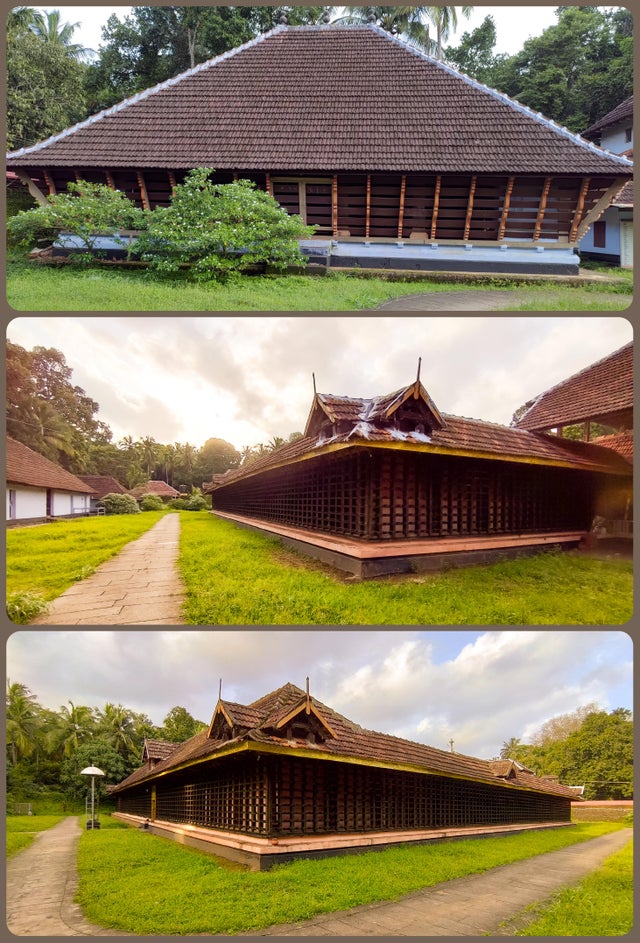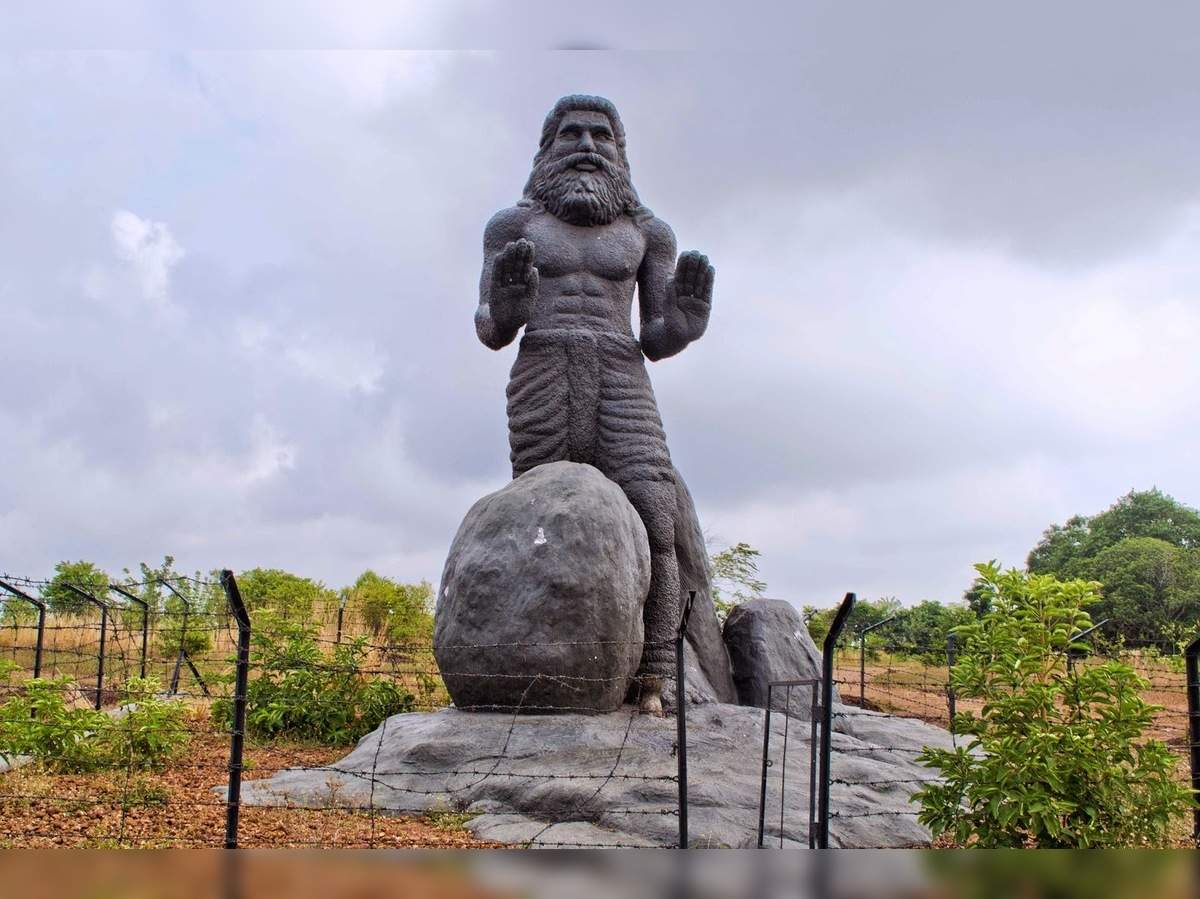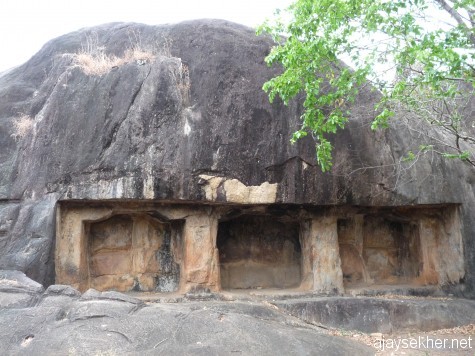
Goverment of Kerala
Revenue Department
Thiruvegappura
Village Office
Official Web Portal

Goverment of Kerala
Official Web Portal

Thiruvegapura is famous for the Mahadeva Kshetram. This Siva Temple is on the banks of Thutha Puzha, a tributary of Bharatha Puzha. This temple is built in the 14th century and is unique in many ways.It is a Temple with exquisite typical Kerala architecture.

Naranathu Branthan was one of the 12 sons sons of Parayi and Vararuchi in the story of Parayi petta panthirukulam. This Mala is at Naduvattom., 3 Kms from Thiruvegapura. Here the hill has a height of 500 feet with an area of 300 acres. Naranathu Branthan got Devi darshan at this place.The place where Naranathu Branthan got vision of Devi is converted into a temple. There is no idol here but Deviu2019s foot print has formed a pit and it is in this pit, a Goddess shrine was built later. The pit is the incessant source for water and being on the hill top, the water in the pit never went down (never dried up). Thousands of people outside and inside Kerala visit the place to have blessings from the Devi on every year on the next day of Deepavali in the month of Thulam u2013 Naranathu Branthan is supposed to have got Deviu2019s vision on this day. There is a big statue of Naranathu Branthan on the hill top which can be seen from the plains. There are caves and black rocks built by Naranathu Branthan here. It is to this hill top that Naranathu Branthan rolled up the big stone and after reaching the top, he used to push the stone down. This he was doingEvery day. The serenity and scenic beauty of the place attracts thousands of people

The ancient rock temple east of Tiruvegapura is in Palakad district of Kerala on the southern bank of river Thutha. It is a huge granite boulder around 40m high and three acres in expansion. There is a flight of steps that lead you to the top exactly like the ones in Karkala or Sravanbelgola but much recent having Malayalam scripts engraved on it. On the eastern side there is a Chaitya carved into the rock. It has three openings and two cut pillars. The left opening is incomplete. The vestige shows marks and techniques of stone cutting used in early common era by Amana monks or their local patrons that is found throughout the peninsular India. Rock cut vestige at Bhranthan Kallu east of Tiruvegapura in Palakad district. Exactly like the Buddhist vestiges identified at Kattilapara in Kulatupuzha.
Application for caste certificate should be submitted in the prescribed form to the village officer or through e-District portal. Certificates issued previously in this regard, attested copies of school certificates, ration card, gazette notification incase of conversion, etc. shall be produced along with the application. Certificates are issued by the village officer after scrutinizing the evidence produced and local enquiry. The Tahsildar issues certificates to be produced before organizations under the central government. Certificates for scheduled caste/scheduled tribe are issued by the Tahsildar, based on the report from the concerned Village Officer.
Application may be submitted via e-District portal or in the prescribed form. Copies of ration card, deeds of land under possession, salary certificate, proof of other income etc. should be submitted along with the application. The Village Officer issues the certificate after scrutinizing the evidence produced and local enquiry. Income in the last 1 year of the date of application shall be considered for assessing the income. Income tax returns document from the previous financial year may be considered for assessing the income, when the same is relied upon.
This certificate is produced by applicants for claiming reservation eligible for other backward communities in State and Central Government Services. This document certifies that the applicant belongs to other eligible backward community and doesn’t fall in the Creamy Layer. Village officers issue this certificate for state government purposes and Tahsildar, for central government purposes. The application for this certificate is submitted in the prescribed form.
Application may be submitted via e-District portal or in the prescribed form. Citizens who were born in Kerala and children of citizens born in other states and are married and have permanent residence in Kerala are eligible for this certificate. This is issued from the village office. In all other cases, residential certificate has to be given. Nativity certificate which are to be produced before the defence authorities is issued by the Additional District Magistrate / Deputy Collector (General). Proof of permanent residence for this purpose has to be produced before the Village Officer, who issues this certificate after scrutinizing the evidence produced and local enquiry.
Applicant’s residence and the intention to stay permanently in a locality are the considerations for issuing a domicile certificate. A person domiciles in a locality by birth, choice or dependency. This certificate is issued by the Tahsildar after verifying the records relating to the citizenship/birth/permanent residence of the parents and local enquiry. A person who was born and brought up and holding a citizenship in a country may be issued the domicile certificate. This can be used in lieu of nationality/citizenship certificate.
The possession certificate includes the details of land, its type & nature, survey number, block number and ownership.
The application for valuation up to Rs 5 Lakh is submitted before the Village Officer, and above to the Tahsildar. The deed/patta, tax receipt and encumbrance certificate of the land to be valued has to be submitted for valuation. It has to be ensured that there are no revenue recovery proceedings or court attachments on the property for which the certificate was applied for. Valuation of buildings above Rs. 5000 has to be done by a competent engineer in PWD buildings and should be included in the certificate. The assessment has to consider the basic value, market parameters and development potential of the property.
The application has to be submitted before the Village Officer. The certificate is issued after perusing evidence like ration card, school certificate, affidavit, depositions and local enquiry. This certificate is issued by the Tahsildar for special and out of state purposes as per the recommendation from the Village Officer.
This certificate is issued for a specific purpose as stated in the application. A declaration of the applicant stating the assets under possession, ration card, identity card, details of relatives and heirs should be submitted. It has to be ascertained through local enquiry that the applicant is a destitute. A destitute means a person who is unprotected, devoid of any income or wealth, unhealthy and eligible for being protected and a means of living. This certificate is issued by the Tahsildar for special and out of state purposes as per the recommendation from the Village Officer.
Application may be submitted via e-District portal or in the prescribed form. Ration card, legal documents, school certificate, identity card and affidavit have to be produced along with the application. The certificate may be issued after local enquiry and taking depositions as deemed required. This certificate is issued by the Tahsildar for special and out of state purposes as per the recommendation from the Village Officer.
This certificate is issued by the RDO. The application may be submitted to the RDO. The certificate is issued after due enquiry via the concerned SHO in the police station.
RDO is authorized to attest the character certificate issued by the concerned authority. The application may be submitted to the RDO. The certificate shall be issued within 7 days of receipt of the application.
The Land Revenue Commissioner notifies villages where crop loss of more than 50% has happened from drought. This certificate is required to avail exemptions eligible on loans given by commercial and cooperative banks.
The application has to be submitted to the village officer along with the details of the property. The certified copies are issued upon remitting the prescribed fee. Certified copies for special and out of state purposes are certified by the Tahsildar.
This certificate is issued by the RDO after enquiring via the Tahsildar. This is issued to those who do not have an income for living, for purposes related to employment in other states.
Application may be submitted in the prescribed form after affixing court fees stamp for Rs. 5, before the Village Officer/Tahsildar. Tahsildar issues this certificate after due enquiry via the Village Officer. The rules for heirship varies across religions. Hence the certificate is issues in accordance with the rules pertaining to the religion to which the deceased belongs. Owing to this reason, the legal heirs are to be identified after careful scrutiny, as per the law.